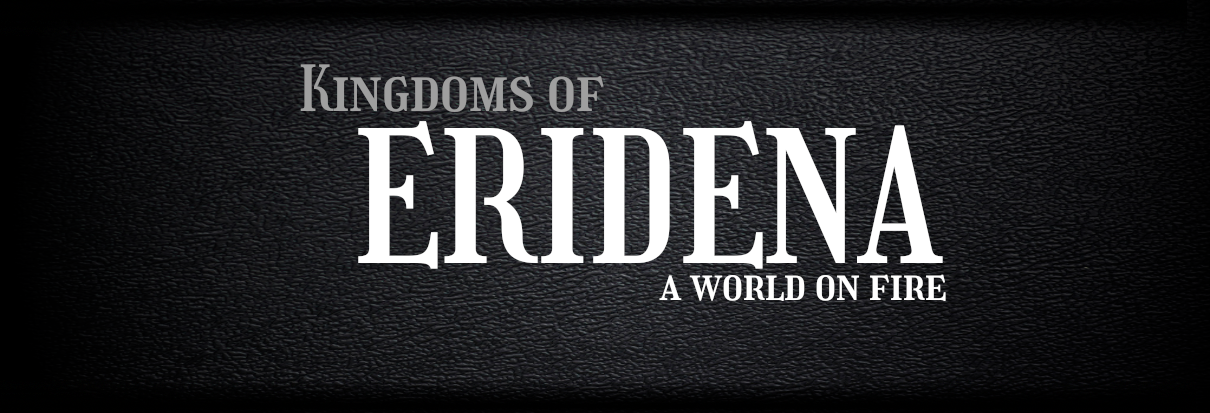Ethnic Traian
The dominant ethnic group in Traia, Ethnic Traians, are generally swarthy with black hair and dark eyes. Body types are varied. Centuries if intermingling with other cultures have made them quite progressive, especially on the east coast, and they readily adopt customs and fashions from other cultures.
Culture
Major language groups and dialects
Most ethnic Traians speak Ishna, an old language that's changed considerably over the centuries, freely borrowing other words from other languages. There are three distinct dialects: Nomadic Ishna is the "purest" form of the language and is spoken almost exclusively by the Unbowed Nomads in the north west reaches of the country. Pashtun Ishna is a dialect spoken by most of the remote villages and towns and remains somewhat purer in form as they see fewer travelers from outside the country, and thus have fewer opportunities to borrow lexicon. Eastern Ishna is the most heavily influenced form of Ishna in the country and is quite far removed from Nomadic. They are the same language but people speaking the two dialects may struggle to understand each other.
The Unbowed Nomads are not considered Ethnic Traians but the group has its roots there.
Culture and cultural heritage
Ethnic Traians have a malleable culture and it's even considered fashionable to adopt customs from other cultures. Short dresses as a fashion item were imported from Sandryne and the Merchant Houses of Craw
Shared customary codes and values
While slavery has been outlawed in Dashia it is legal in the rest of the country, however it is rare and enslaving citizen Traians is illegal.
Traians readily adopt gods from other pantheons. This tendency has given the entire country a pantheon numbering in the hundreds covering everything from war to keeping ink from drying out.
Common Etiquette rules
Traians rarely use cutlery when eating, instead most meals are eaten with flatbread and food is pinched between strips of the bread.
It is very rude to wear any headgear inside.
Spitting, especially indoors, and especially as a guest, is the height of effrontery. It is often illegal to do outside in towns and cities.
Common Dress code
Traians like bright colors and light fabrics to help combat the blistering heat of The Pashtu Desert. Robes, togas, and short tunics are all common apparel for men and women alike. Fitted dresses that fall to the knees are also common for women. Shawls, scarfs, and other headgear that hides, and protects, the face are all common for men and women. Wearing such indoors is considered rude.
Art & Architecture
Ethnic Traians have had a long history with stonecutting and are considered masters of building and sculpture. Their sculpting and building prowess is on display to the extreme in the marbled, statue lined streets of Dashia.
Funerary and Memorial customs
In the western reaches of the country the dead are left in high piles of stones to feed the eagles in the fashion of the Unbowed Nomads. Elsewhere, entombment is both traditional and practical as the ever shifting sands of the Pashtu tend to uncover bodies as often as they bury them.
Common Taboos
Ethnic Traians are remarkably progressive thanks to centuries of dealing with outsiders. They have few real taboos and even same sex relationships aren't frowned upon, though they're rare enough to garner attention. Generally, as long as someone isn't creating a scene, or hurting anyone it's tolerated.
Common Myths and Legends
Ethnic Traians consider green eyes a mark of good luck, and it is as rare as it is dazzling to behold.
It is considered unlucky to name a baby after a direct relative, and it is very common a baby to not be named at all, and instead parents give their baby an affectionate nickname derived from something, or somewhere important to its parents. for a baby to be given a "common" name that is used until the child is old enough to pick out its own name. Common names tend to be affectionate nicknames derived from something, or somewhere important to the child's parents. This leads to interesting results for some children, including one mythical lad who spent his formative years named after his grandmother's favorite cat.
Parent ethnicities
Related Organizations
Related Locations
Remove these ads. Join the Worldbuilders Guild









Comments